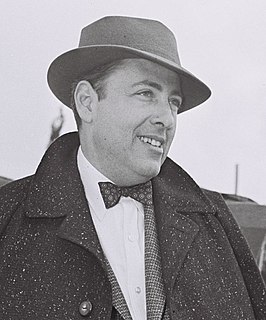A Quote by Elie Wiesel
The Bible is interpreted by the Talmud. Except, in Rabbinic tradition, a Talmudic law has the weight of the Biblical law. Sometimes we say in a prayer, "Blessed are Thou, O God, who has ordered us and commended us," to do something. But you don't find that "something" in the Bible; you find it in the Talmud. So Talmudic law becomes as important as Biblical law.
Related Quotes
The law is equal before all of us; but we are not all equal before the law. Virtually there is one law for the rich and another for the poor, one law for the cunning and another for the simple, one law for the forceful and another for the feeble, one law for the ignorant and another for the learned, one law for the brave and another for the timid, and within family limits one law for the parent and no law at all for the child.
There is one all-important law of human conduct. If we obey that law, we shall almost never get into trouble. In fact, that law, if obeyed, will bring us countless friends and constant happiness. But the very instant we break the law, we shall get into endless trouble. The law is this: Always make the other person feel important.
None of us like the concept of law because none of us like the restraints it puts on us. But when we understand that God has given us his law to aid us in guarding our souls, we see that the law is for our fulfillment, not for our limitation. The law reminds us that some things, some experiences, some relationships are sacred. When everything has been profaned, it is not just my freedom that has been lost- the loss is everyone's. God gave us the law to remind us of the sacredness of life, and our created legal systems only serve to remind us of the profane judgments we make.
Grace means that God does something for me; law means that I do something for God. God has certain holy and righteous demands which he places upon me: that is law. Now if law means that God requires something of me for their fulfillment, then deliverance from law means he no longer requires that from me, but himself provides it.
The honor that we pay to the Son of God, as well as that which we render to God the Father, consists of an upright course of life. This is plainly taught us by the passage, "You that boast of the Law, through breaking the Law dishonor God."...For if he who transgresses the law dishonors God by his transgression,...it is evident that he who keeps the law honors God. So the worshipper of God is he whose life is regulated by the principles and teachings of the Divine Word





































